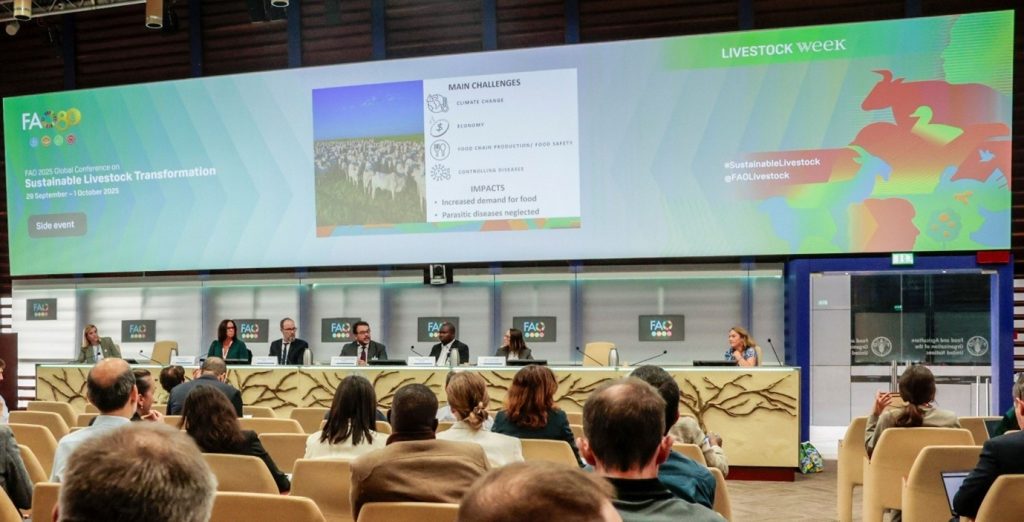At the recently held FAO 2025 Global Conference on Sustainable Livestock transformation, GALVmed participated in a side event titled “Tackling Tick and Acaricide Resistance through Surveillance and Diagnostics – From local expertise to global coordination”. The side event, which was held on the 30th September 2025, brought together a diverse coalition of stakeholders including FAO, IPVDF * (Brazil), Makerere University (Uganda), the Gates Foundation, and Ceva Animal Health. The event highlights the urgent need to address tick infestations, which cause up to $30 billion in global livestock losses annually.
Resistance to chemical acaricides is escalating due to overuse, threatening food security and smallholder livelihoods. Local initiatives in Brazil and Uganda have demonstrated impactful solutions: According to a presentation by Guilherme Klafke of Instituto de Pesquisas Veterinárias Desidério Finamor (IPVDF), Brazil’s state-supported surveillance system benefits 40,000 farms and 14 million cattle, while Uganda’s national program supports 2.3 million households and 14.5 million cattle, as presented by Patrick Vudriko of Makarere University.
Building on these local successes, a global network formed in 2023 has been working to harmonize resistance testing protocols and develop practical diagnostic tools through public–private partnerships. Early results showed improved access to diagnostics and more rational acaricide use, with signs of increased productivity. However, challenges remain, including high implementation costs, limited affordability, and low farmer awareness. Sustainable tick control will require coordinated global efforts, timely data sharing, and integration with local farming practices to ensure long-term impact and resilience.
